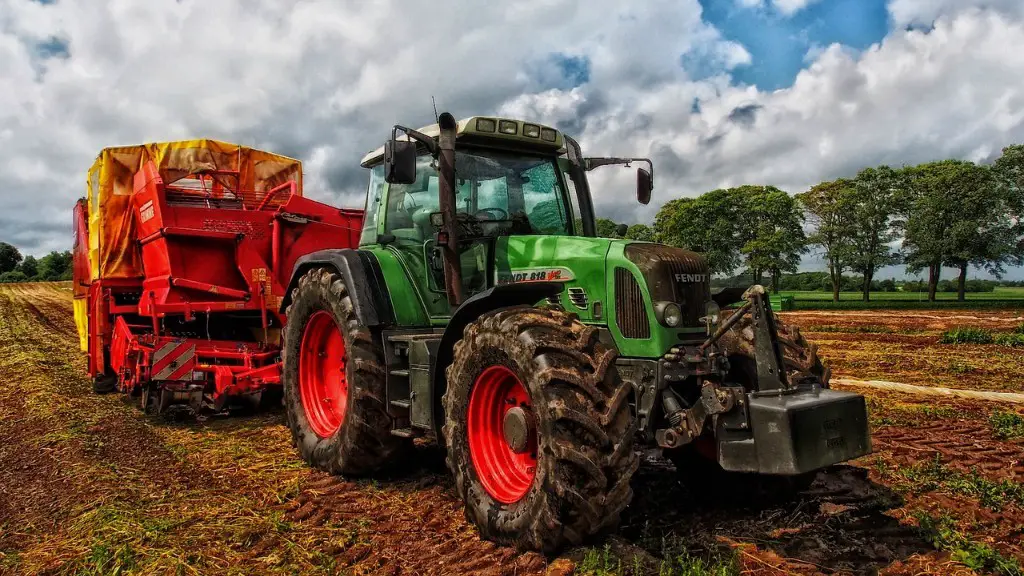When opting for an agricultural-focused career after 12th, there are many routes to consider. Those looking to break into the sector should research the various pathways available depending upon their interests and qualifications. Generally speaking, the most popular route for entry is undergraduate studies in agriculture, followed by specialized courses or continuing degrees such as a master’s or doctorate. When deciding on a career in agriculture, the primary considerations are: aptitude, specialism and qualifications.
Firstly, find out what kind of role you’d like to take on. From crop production to post-harvest management, the agriculture sector is vast and varied. Once you’ve identified the type of work you’d like to pursue, research the qualifications needed to land the job. Depending on the specialism, there may be specific qualifications or relevant experience required.
For those looking to pursue an agricultural career, an undergraduate degree is a great place to start. There are numerous institutions, both offline and online, offering dedicated courses in agricultural studies. Many programs will focus on the core sciences, such as biology or chemistry, so research the area of focus to best suit your interests.
For those looking to further their education, a master’s or doctorate in agriculture is another option. While each program may specialize in a different topic, the core curriculum will remain universal. Common topics include research methods, agricultural analysis and farm management. Depending on the institution and degree chosen, there may also be the opportunity to specialize in subjects such as livestock production or agroecology.
Once a student has obtained a degree in agriculture, there are many options available for career entry. Government roles and internships are a great place to start, as they enable students to apply their knowledge while gaining valuable experience. Depending on the country or region, many of these positions require a specific qualification and some may even be funded by the government.
Finally, those looking to pursue a career in agriculture may wish to look into the various grants, fellowships, and scholarships available. It is always a good idea to explore multiple options and compare the fees and program duration. Grants, fellowships and scholarships are often merit based and may require essential standards to be met.
Landing an Agriculture Job
Once the qualifications and relevant experience is obtained, the final step is to land an agriculture job. There are many ways to go about this, from networking and attending industry events to searching job databases or browsing professional recruitment websites. No matter which route is chosen, preparation and research is always key.
It is a good idea to update one’s resumé and portfolio with any relevant information, showcasing any qualifications or experience obtained. The internet is a great resource for gaining information on both job openings and networking opportunities in agriculture. For example, specialized websites such as agriculturejobs.com are a great place to start.
Networking is another great route to land a job in agriculture. Attend industry events, connect with industry professionals, and join specific groups and networks to make the connections that can lead to a successful career.
Social media can also be a great tool, enabling job seekers to stay up to date with job opportunities and new developments in their chosen sector. From Twitter to LinkedIn, the internet offers a wealth of information at one’s finger tips. Building up a strong online presence can make it easier for employers to find the right candidate for the job.
What You Need to Know
When looking to break into the field of agriculture, it is important to understand the industry. Whether researching the pathways available or networking with industry professionals, it is essential to understand the core topics, the current job market and even the trends taking place within the sector.
It is also a good idea to research the job market, understanding who the top players are, what roles are most in demand and even which locations are leading the way. Knowing who the key players are can be a great way to get a foot in the door and start making the right connections.
Organizations, such as farm advisory services, agricultural societies and farm education centers, are a great resource when looking to gain information on trends, roles and even funding opportunities. A strong online presence is also important, with many job searches now taking place online.
Lastly, the transferable skills will often be the most important factor when applying and interviewing for a role. Understanding the core skills required, such as communication, problem-solving and people skills, is essential for success.
Further Education
Further education can play an essential role when pursuing a career in agriculture. By taking part in additional courses or seminars, job seekers can gain an edge over the competition.
Online courses are a great way to stay ahead of the curve, broaden one’s knowledge and even gain industry-recognized qualifications. Different lessons can also be tailored to focus on specific topics and content, as well as target advanced skills and specialisms.
Onsite courses and seminars can also be beneficial, offering a more immersive learning environment and allowing job seekers to get up close to their chosen industry. The specifics of these will depend on the tutor or institution chosen, although topics such as market analysis and soil management may often be covered.
Lastly, courses and seminars should not be limited to agriculture. It is often wise to gain knowledge in other topics, such as business and economics, to better understand the wider context and industry.
Networking and Mentors
Networking and mentorship can be a great way to build up a successful career in agriculture.Finding the right people to mentor and network with is key, with social media, onsite events and online discussion boards great resources for meeting the right professionals in the industry.
Many mentors are very busy and may charge a fee, so it is always wise to look into the credentials of the mentor and consider the type of cost that may be involved. Once the right mentor is found, understanding both the mentor’s fees and expectations is important.
Networking, on the other hand, can often be a faster way to meet industry professionals, make the right connections and even obtain job opportunities. Attend industry events, join the right LinkedIn groups, and even browse the various websites and discussion boards related to agriculture.
By making the right connections and reaching out to those in the industry, it is possible to build a successful career in agriculture. Understanding the correct pathways, ensuring the best qualifications, and networking with industry professionals are all essential steps to take when exploring the sector.
Agriculture Resources
When advancing one’s agricultural knowledge and understanding, resources can be a great tool. Books, online courses and seminars are just some of the options available when wanting to gain an edge over the competition.
For those wanting to expand their knowledge within the agricultural sector, there are websites such as the USDA National Agricultural Library, offering a wealth of information on different topics within the industry. Subjects such as animal nutrition and agricultural research are available, making it easy for job seekers to find the information required for success.
Additionally, Australia also has its own agricultural library, as well as a number of dedicated websites, offering essential tips and advice on a variety of agricultural topics.
YouTube is also a great resource, with channels such as agrifutures Australia offering great insights into the industry. These types of channels offer both educational and entertaining commentary on the agricultural sector.
In addition to websites, books can also be a great source of information, offering both advice and expertise on the subject matter. There are numerous publications on the topic, so make sure to research the specific book before investing.
Regardless of one’s chosen method, resources should always form an essential part of the preparation for a career in agriculture. From resources such as libraries and websites to books, seminars and online courses, make sure to research the options and seize any opportunity.





